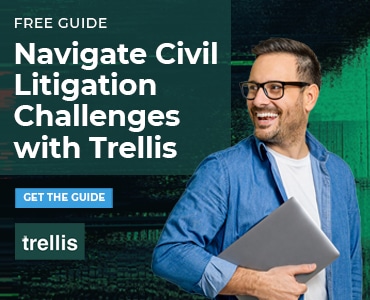The Annual Super Marketing Conference brings legal marketing experts from across the continent to Boston (and broadcasts beyond) to share their knowledge. The fourth annual, hosted by Suffolk University Law School and the Law Office Management Assistance Program of the Massachusetts Bar (LOMAP), took place June 5. The focus: “Building relationships to build business.” Boston attorney Sofia Lingos reports her Friday Five favorite super marketing take-aways!
1. Create a customer-centric experience. What does the Apple Store have that AT&T stores don’t? The iPhone and iPads are no longer the answer, since those products can be procured at either place. Few would argue, however, that the experience of purchasing your i-branded device is the same outside of the white-washed walls of Apple. Keynote speaker Jack Newton, CEO of Clio, challenged attorneys to focus on providing a similarly unique customer-centric experience for their clients through cloud-based technologies. Cloud tools, previously reserved for the well-financed few, are now accessible for use by the “any and many.” The legal profession has always been slow to adapt to change, even compared to other service-based fields, and is usually driven by demands from our (always reasonable) clients, who want quick, quality, competent services at the lowest cost. You must distinguish your brand by providing a positive and memorable experience that will ensure you set a standard by which no competitor can compare. Newton reminded us that, “It is not what you sell, it is how you sell it” and left us with these tips:
- Under-promise and overdeliver.
- Empower employees (they’re your front line).
- Connect with your customers in a genuine way.
- Find ways to build trust.
- Figure out what you want to be known for and do it best.
2. Keep it in the cloud. So what, pray tell, shall we do in the cloud? Everything! But first, stop making excuses about security. Most cloud-based services are more secure than the email system you used to send your client that confidential document today. Also, email is probably the worst way to collaborate on documents. That email chain of “Document Draft 3 – June 5 – 2014 at 5:47pm” could be completed in real time through a free collaborative workspace like Google Docs. Plus, how much time and money do you spend on paper bills? With an interactive online invoice you can send your clients their bills and accept payment at the click of a button. Or, how do you organize your information? Evernote allows you to collect and locate everything that matters to you — notes, links, images — in one searchable place. And, most importantly, when you get home and realize that the draft of the Attorney at Work article you were writing is on the computer sitting on your desk at the office, you no longer need to put on pants and return to said office. You merely access your Dropbox, Box or Google Drive folder and continue where you left off. (Side note about pant-wearing preferences: Dressing from the waist up is all that’s required for videoconferencing via Skype, Google Hangouts and other cloud-based service providers.)
3. Truth or lie? While not quite as, well, scintillating as Truth-or-Dare (though that could have been interesting), we were joined by Conrad Saam of Mockingbird Marketing, Gyi Tsakalakis of Attorney Sync and Leigh McMillan of Avvo, who shared the absolute truths and outright lies of relationship marketing. A few truths:
- Websites can be cheap and easy to do well — if you use WordPress, that is.
- You should always own your domain name and content! Not sure if you own your firm’s URL? Type your website name into the Whois box at domaintools.com.
- Your website must be mobile optimized and include a clickable phone number in the website header (but make sure the number is not an image).
- Lawyer reviews matter — and 74 percent of clients don’t mind being asked to write one.
- People hate slow websites! How slow is yours? Go to speedtest.org.
And a few lies:
- Only law-related content belongs on blogs.
- Your headshot should show you in front of law books or a courthouse, holding a gavel or balancing on the scales of justice.
- More domains equal more business.
- You can hire a writer to create your personal content, as long as it’s posted consistently.
- You should join all social media sites, even if just to say you have an account.
Bottom line? Focus on the fact that you are cultivating relationships, creating connections and communicating. Be sincere and make sure the content you create clearly conveys the message you intend.
4. Your online scorecard. Are you keeping track of the time and money you spend on online marketing? Do you know how and where to look? Experts Leigh McMillan and Conrad Saam shared tips that even the technically challenged can use. You must have Google Analytics installed on your website and blog, and you should be watching your interactions steadily increase. Also, review your sites through Google Webmaster Tools. Make sure your business information is consistent across the web. Analyzing your return on investment, and understanding the impact of the tools you choose to use, is the most important component of your marketing strategy.
5. Remember, relationships still matter. A common theme throughout the day was that relationships still matter. In the final session, the panel of presenters offered these words of wisdom:
- Put yourself in the customers’ shoes and focus your content on what is valuable to them.
- Give attentive, competent service.
- Use your real name and image online and in social media — and therefore use your brain about what should and should not be broadcast to the world.
- Find people you already know in real life and connect virtually.
- Listen more than you post and reply more than you broadcast.
- Find your referral sources and customers offline. What are you doing to get in front of them face-to-face?
- Get organized, have a plan and implement it now — the best time to market is before it’s too late!
- Invest in existing clients.
- Never forget that you are running a business.
- Stop thinking about marketing and start looking through the lens of reputations and relationships.
- Don’t get discouraged.
And finally, in the words of Arthur Ashe: “Start where you are. Use what you have. Do what you can.”
Sofia S. Lingos is the principal and founding attorney of Lingos Law, LLC, a boutique business law firm in Boston, representing small businesses and entrepreneurs in forming, protecting, maintaining and growing their ventures. She also expanded her practice internationally to represent Greek-Americans in turnkey transactional services abroad. An adjunct professor at Northeastern University School of Law, Sofia teaches a course on Law Practice Management and Access to Justice. Follow her on Twitter @SofiaLingosEsq.






















